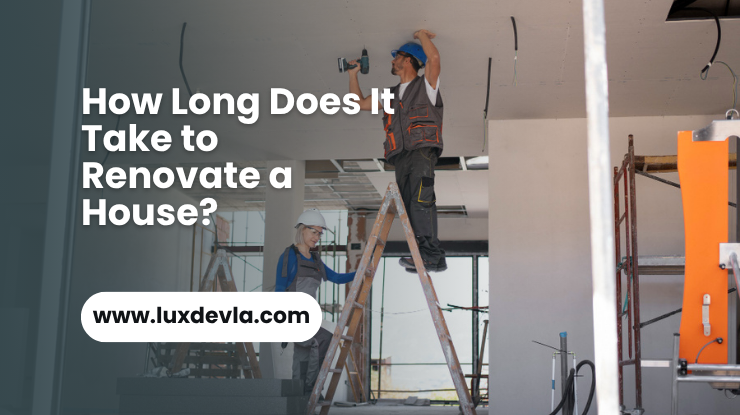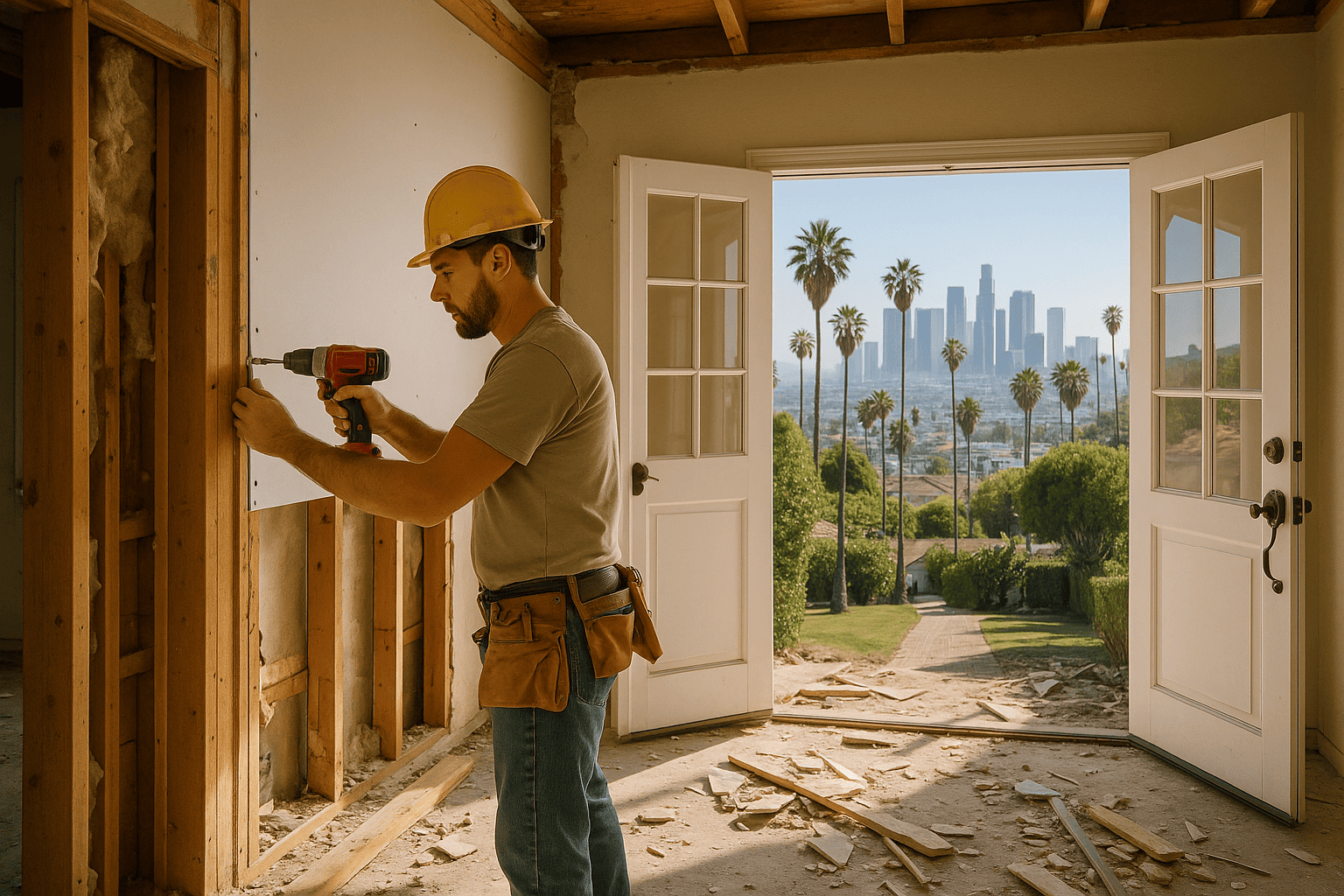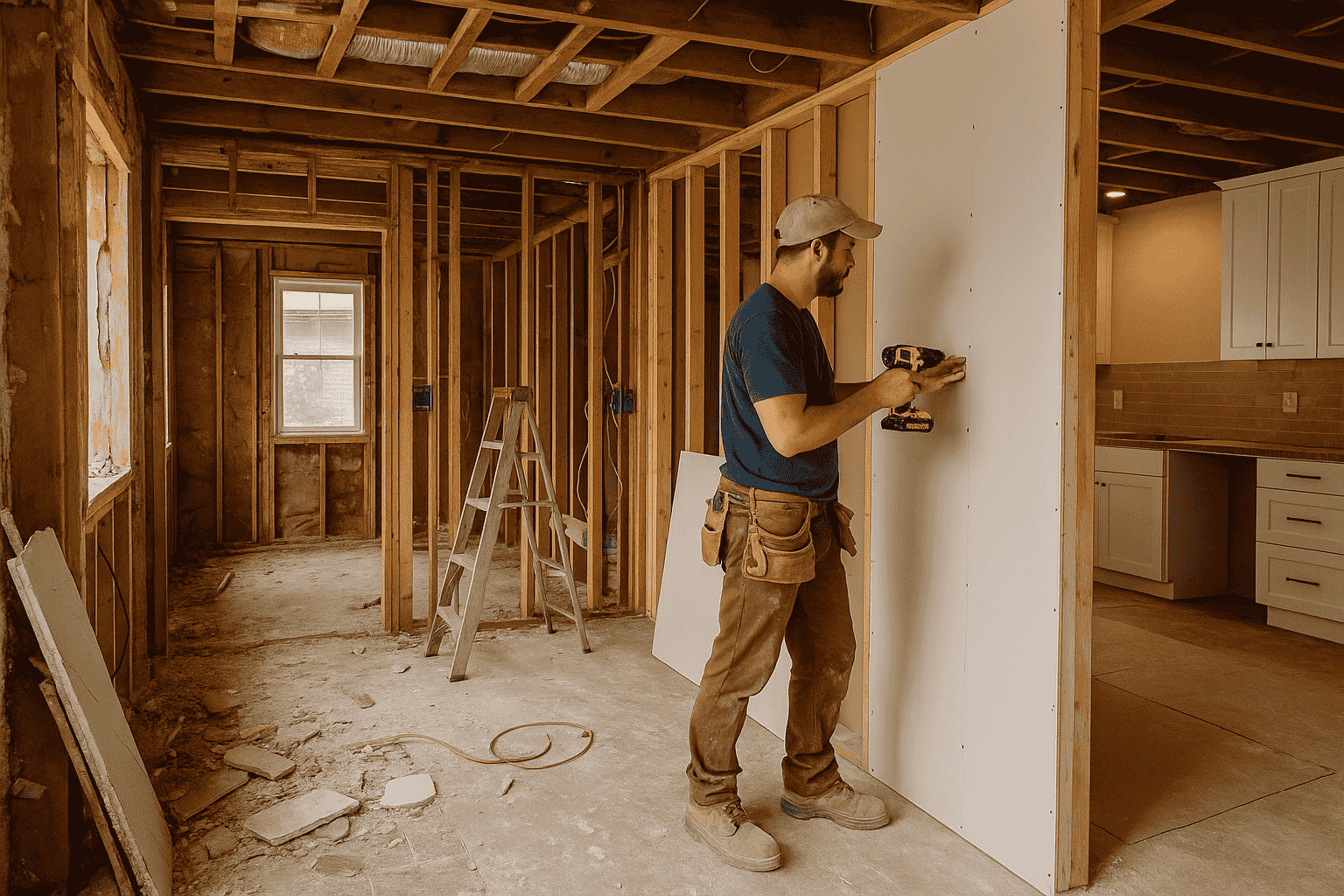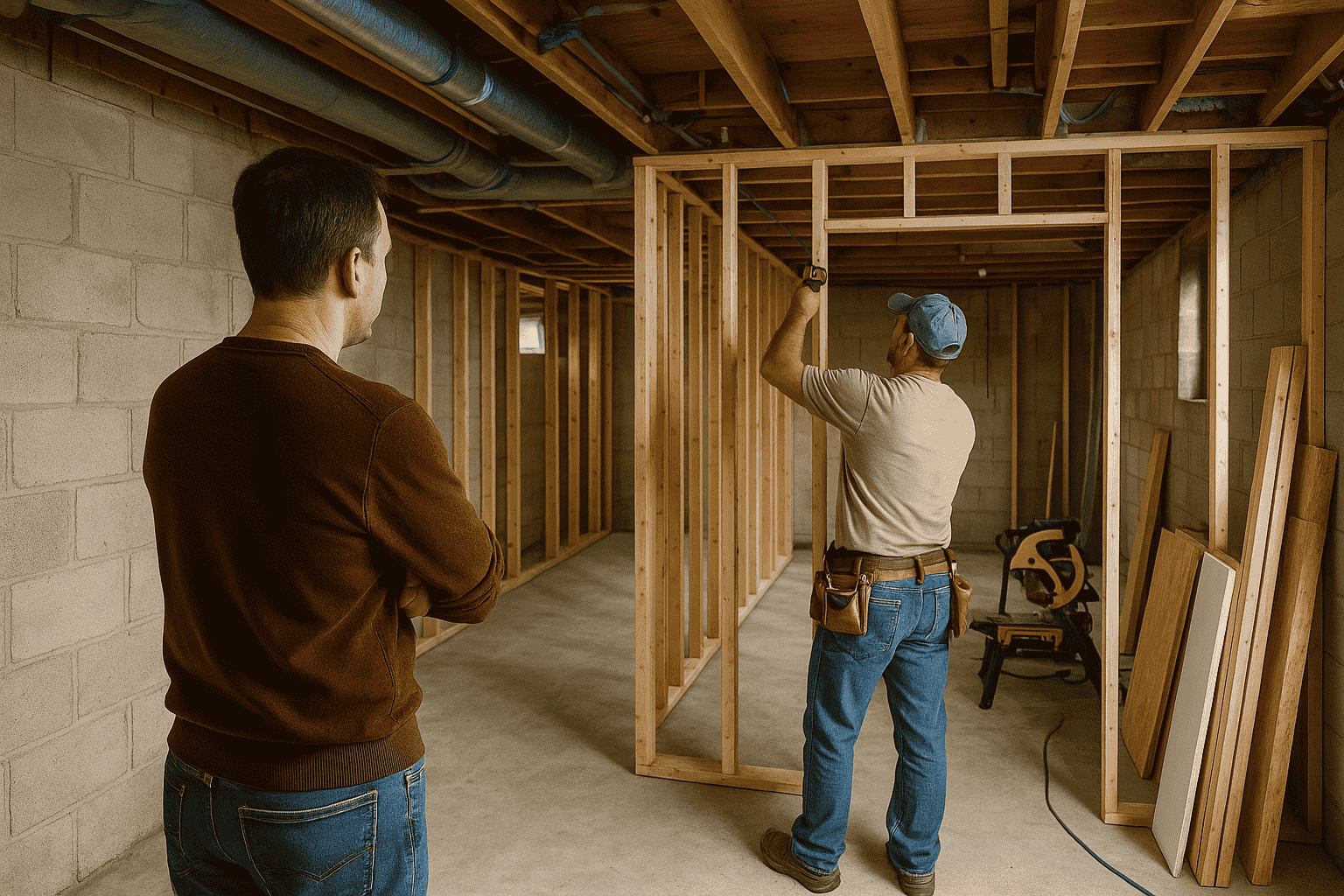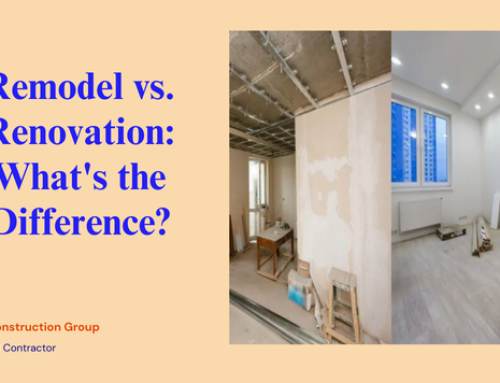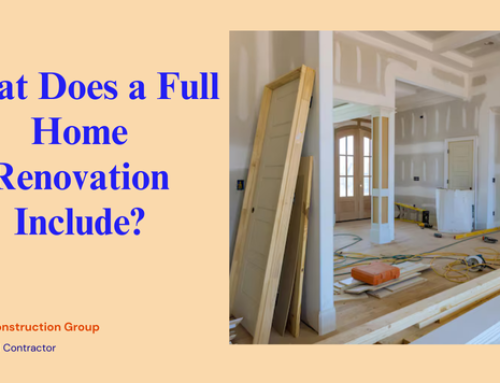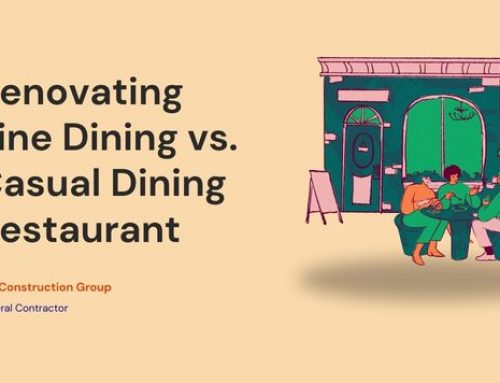How long does it take to renovate a house in Los Angeles? It’s one of the first, and most critical, questions homeowners ask when planning to renovate a home. Whether you are refreshing a bathroom, remodeling a kitchen, basement construction or expansion, and undertaking a full-house renovation, the answer isn’t just a number;
It’s a complex blend of
- Design decisions,
- Permit requirements,
- Construction phases, and
- Material lead times.
In cities like Los Angeles, where zoning laws, seismic codes, and permitting backlogs vary by neighborhood, timelines can range from a few weeks to well over a year, depending on the project scope.
Home renovation timelines aren’t just about scheduling; they directly impact where you live, how you plan your finances, and when you can enjoy your newly transformed space. That’s why it’s vital to understand the moving parts that determine project duration, from kitchen renovation timelines to whole-house remodeling schedules.
When clients ask how long it takes to renovate a house, our answer comes backed by data, real-world experience, and a transparent process that’s been refined across hundreds of projects.
This guide outlines typical renovation timelines for various project types in Los Angeles, highlights the common factors that affect project duration, and provides practical insights to help homeowners plan more efficiently and avoid unnecessary delays.
So, without further ado, let’s start!!!
According to the National Association of Realtors, U.S. homeowners spent over $603 billion on remodeling in 2024, an all-time high. With more people investing in their homes, getting the timeline right matters more than ever.
Contents
- What’s the Average Time to Renovate a House in LA?
- What Factors Affect the Home Renovation Timeline (and How Can You Avoid Delays)?
- How Does the Scope of Work Impact Your Renovation Timeline?
- How Do Design Decisions and Finishes Influence Scheduling?
- Why Is Permitting a Major Timeline Variable in Los Angeles?
- What Structural Surprises Can Add Weeks to Your Project?
- How Do Material Availability and Labor Scheduling Play a Role?
- How Can You Prevent Most Renovation Delays?
- What Does a Realistic Renovation Timeline Look Like, Phase by Phase?
- Phase 1: Design & Planning (1–4 Months)
- Phase 2: Pre-Construction & Permitting (2–5 Months)
- Phase 3: Construction Execution (3–12+ Months)
- Phase 4: Project Completion & Move-In (2–4 Weeks)
- Ready to Renovate or Expand Your Basement in Los Angeles?
- FAQs
- What permits do I need to renovate a house in Los Angeles?
- How much does it cost to renovate a house in Los Angeles?
- How long does it take to build a home in Los Angeles?
What’s the Average Time to Renovate a House in LA?
The average time to renovate a house in Los Angeles ranges from 2 to 18 months. Small projects like bathrooms take 2–4 months, while full-house renovations can take 9–18 months, depending on design, permits, and construction scope.
Here’s a breakdown of average home renovation timelines across different project types common in Los Angeles homes:
| Project Type | Design & Planning | Construction Time | Total Timeline |
|---|---|---|---|
| Kitchen Remodel | 4–8 weeks | 6–12 weeks | 3–5 months |
| Bathroom Remodel | 3–6 weeks | 4–10 weeks | 2–4 months |
| Multi-Room Interior | 6–12 weeks | 3–6 months | 5–9 months |
| Whole-House Renovation | 3–6 months | 6–12+ months | 9–18+ months |
| New ADU Construction | 3–5 months | 5–9 months | 8–14+ months |
These numbers represent well-executed projects with minimal delays, meaning the contractor has a proactive approach to city permits, design lock-in, and materials logistics.
What many homeowners don’t realize is that renovation delays are often preventable with proper planning, clear design decisions, and efficient project sequencing. Addressing potential bottlenecks early in the process can significantly reduce the risk of costly setbacks.
But knowing average timelines is only half the picture. The real question is: what determines whether your project stays on track or spirals into delay?
Let’s unpack the core factors that influence how long it truly takes to renovate a house.
What Factors Affect the Home Renovation Timeline (and How Can You Avoid Delays)?
The biggest factors that affect how long it takes to renovate a house include project size, design complexity, permit approvals, material availability, and unexpected structural issues. Choosing a local design-build team helps avoid most delays.
How Does the Scope of Work Impact Your Renovation Timeline?
A cosmetic update, like painting or replacing fixtures, may only take a few weeks. But a kitchen remodel that involves plumbing, electrical upgrades, or structural changes can take months. The broader the renovation, the more moving parts, each requiring time to coordinate, execute, and inspect.
How Do Design Decisions and Finishes Influence Scheduling?
Design choices and finish selections can significantly impact a renovation timeline. High-end features like custom cabinetry, specialty fixtures, or imported materials often come with extended lead times. If these items are not available when needed, construction may be delayed until they arrive. Making final selections early in the planning process helps reduce the risk of disruptions and allows for better coordination between design and construction phases.
Why Is Permitting a Major Timeline Variable in Los Angeles?
Cities like Beverly Hills, Santa Monica, and LA proper each have their own review timelines, documentation standards, and zoning codes. Delays often occur when plans require revisions or additional approvals. A seasoned design-build team familiar with local departments, like ours, can navigate this process proactively.
What Structural Surprises Can Add Weeks to Your Project?
During renovation, uncovering hidden structural issues is common once walls, floors, or ceilings are opened. Problems such as termite damage, outdated or unsafe wiring, water intrusion, mold, or seismic vulnerabilities can add weeks to the project timeline.
These issues must be properly addressed before work can continue, often requiring additional inspections, repairs, or engineering approvals. Building in a contingency plan for such surprises is a practical way to prepare for potential delays.
How Do Material Availability and Labor Scheduling Play a Role?
Supply chain delays still affect certain appliances and materials. Meanwhile, peak-season construction demands can stretch contractor availability. We mitigate this by syncing design milestones with construction schedules and locking in tradespeople early.
How Can You Prevent Most Renovation Delays?
- Finalize design selections early
- Avoid mid-project change orders
- Trust your contractor’s timeline buffer
- Stay engaged in weekly updates
- Work with a design-build team that integrates planning and execution
Now that you know what can slow down a renovation, let’s look at how a project unfolds from planning to move-in, so you can set realistic expectations for every phase.
What Does a Realistic Renovation Timeline Look Like, Phase by Phase?
Even the most complex renovations follow a rhythm. Understanding the key phases of a remodel and how long each typically takes can help you set realistic expectations and avoid surprises.
Phase 1: Design & Planning (1–4 Months)
This is where your project begins to take shape. We start with a consultation, gather measurements, and create 3D design concepts tailored to your vision. You’ll choose materials, fixtures, and finishes while we prepare construction drawings and engineering plans.
Tip: Finalizing selections early here helps avoid costly change orders later.
Phase 2: Pre-Construction & Permitting (2–5 Months)
We submit plans to the city, coordinate with structural engineers, and begin sourcing long-lead-time materials. LA-area permits can take anywhere from 4 to 20+ weeks, depending on location and complexity.
Good news: Our team often overlaps this phase with the final stages of design to save time.
Phase 3: Construction Execution (3–12+ Months)
Demolition kicks off the physical transformation, followed by framing, rough plumbing and electrical, inspections, drywall, and interior finishes like cabinetry, tile, and paint. The more rooms or systems involved, the longer this phase takes.
Phase 4: Project Completion & Move-In (2–4 Weeks)
We wrap up final inspections, complete the punch list, and walk you through your finished space. We ensure every detail meets the agreed specs before handing over the keys.
While each phase plays a crucial role in the overall timeline, the real key to finishing on time is how well those phases are managed.
Ready to Renovate or Expand Your Basement in Los Angeles?
While every home renovation project comes with its own set of variables, basement construction and expansion in Los Angeles brings unique challenges and opportunities, from navigating hillside terrain and waterproofing requirements to optimizing layout in limited square footage.
Understanding how long a renovation takes isn’t just about project duration, it’s about aligning expectations, planning finances, and making informed decisions. For homeowners considering a basement project, timelines may vary based on the condition of the existing structure, permit timelines, and desired function (e.g., guest suite, home office, or ADU).
In a city like Los Angeles, where space is at a premium and building codes are highly specific, working with a team that understands both the technical and logistical aspects of basement projects can make the process more predictable and less stressful.
If your renovation goals include expanding downward into unused space, make sure your timeline accounts for the unique considerations of basement construction, and choose partners with experience in this specialized field.

